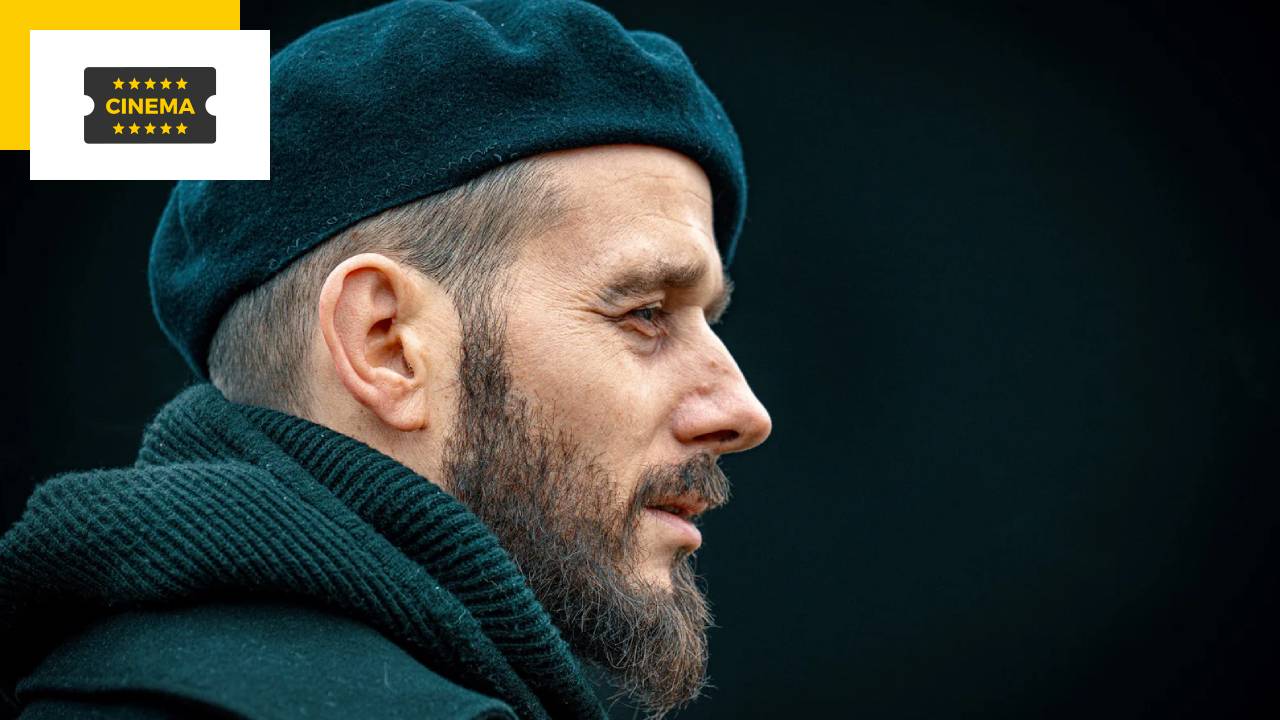Is Abbé Pierre faithful to his story? While the biopic led by Benjamin Lavernhe has just been released, some answers on the approach of the film, which aims to be both realistic and subjective.
Is everything true in the film Abbé Pierre? Released in cinemas this Wednesday, November 8, it aims to retrace the life of this well-known French figure. With a performance by Benjamin Lavernhe unanimously praised by all the first spectators.
As its director, Frédéric Tellier, told us on our microphone, the “first idea“, for Abbé Pierre – a life of combat, was”not to paraphrase the icon that everyone more or less knew“. And added: “What particularly touches me are the human beings, what could have been behind it. And obviously, when I discovered that he had an unconditional love with Lucie Coutaz for forty years, I began to be very interested in this story. I wanted to show someone with hollows and fullnesses, with reliefs in fact, someone fairly normal in their daily life, who was capable of the constancy of their goodness over the longevity of a life. amazing.”
Find answers, imagine some of them by pasting a little of the small fragments collected from right to left
He pursues : “The work really begins there. Now that we have clearly identified the main salient parts of the story, what were its internal mechanics to get there? What made him move, to move constantly? Did he lose his shit? Was he scared? Did he give up his weapons at any point? Did he betray himself? The thousand questions we ask ourselves every morning about the meaning of life…
This is what I tried to process, to find answers, to imagine some of them by pasting a little of the little fragments collected here and there. To offer a view of him that is not the one we have seen so far, with all the respect of the one we have seen of him so far.“
To write the screenplay for the film, Frédéric Tellier worked with Olivier Gorce, who also had the distinction of having written a biography dedicated to Abbé Pierre, in 1994, under the title The Missionary of the Impossible.
We quickly moved on to some pretty epic references, and not just a little biopic with the necessary steps!
“At this level of notoriety, [s’emparer d’un tel sujet] is almost tricky. The danger is to be completely inhibited by the real characterhe explained during the film’s press conference in Cannes. You don’t dedicate 5 years of your life just to make a tribute. We immediately asked ourselves the question: what cinematic path will we find to tell this story? What artistic ambition are we going to give ourselves through this character? That was the big difficulty. We quickly talked about an epic film. For example, Neuilly Plaisance, the beginnings of Emmaüs, was like a western. We quickly moved on to some pretty epic references, and not just a little biopic with the necessary steps!”
To document the film, the screenwriters were able to count on the support of the Abbé Pierre Foundation, which gave them access to extensive documentation. Concretely, the team was able to access the archives, i.e. around 5,000 photos including 1,500 previously unpublished. There were also video documents, and the team was able to visit communities and go on patrols.
“The producers introduced me to the Abbé Pierre Foundation, which was involved in the film. This is where I started to have access to the incredible testimonials. (…) All of this began to constitute testimonies, with little confidences that are nowhere.
And I will keep in mind that the Foundation always told us: We must be irreverent! Because the abbot would not have liked it to be a little too clean. You don’t hesitate! You go there, you show everything!”
The challenge, beyond realism, was to fit a very dense life into a fairly short time limit, and also showing lesser known episodes of his life, such as his internment in a psychiatric hospital. “It’s unfair to summarize 74 years of a man’s life in 2 hours 15 minutes.“, summarizes Frédéric Tellier. “It is a subjective point of view on things that represents, in a certain way, what happened. There’s obviously a lot of things missing, a lot of nuance, a lot of variation in his life that existed. It’s a rather subjective point of view on his life.“
In the first timeline, we’re going for a 5h30 film!
He gives some details about their working method: “We made a sort of timeline of his life, both factual and intimate, trying to juxtapose the essentials. For example, we wondered whether we should talk about the call of 54, since everyone knew about it. And very quickly, while discussing, we say to ourselves: we cannot not make the call of 54. So how do we do it? And obviously what takes time to write is that in the first timeline, it’s a 5h30 film! Then we shrink, then we keep things. And then if we remove that, that’s missing. How to transform? We started by building the salient parts of the factual, and finding what we liked in the intimate, and trying to articulate it all.“
The risk was too much
Olivier Gorce adds: “It’s not that common someone who has accomplished so much. The risk was too much. Almost not credible, to accumulate the fights, the heroic actions, so we had to do some work: give him time, fragilities, and the duo actually with Lucie Couttaz, which is very fundamental, and which structured the dramaturgy, which imposed itself on us.“
As for the character portrayed, Frédéric Tellier indicates that Abbé Pierre had “a character, even anger, and indeed gentleness”. Benjamin Lavernhe adds: “The film chooses to show his combativeness, to show him in action. I hope we also see his tenderness and gentleness.“
Abbé Pierre – A Life of Fighting is currently in theaters.
